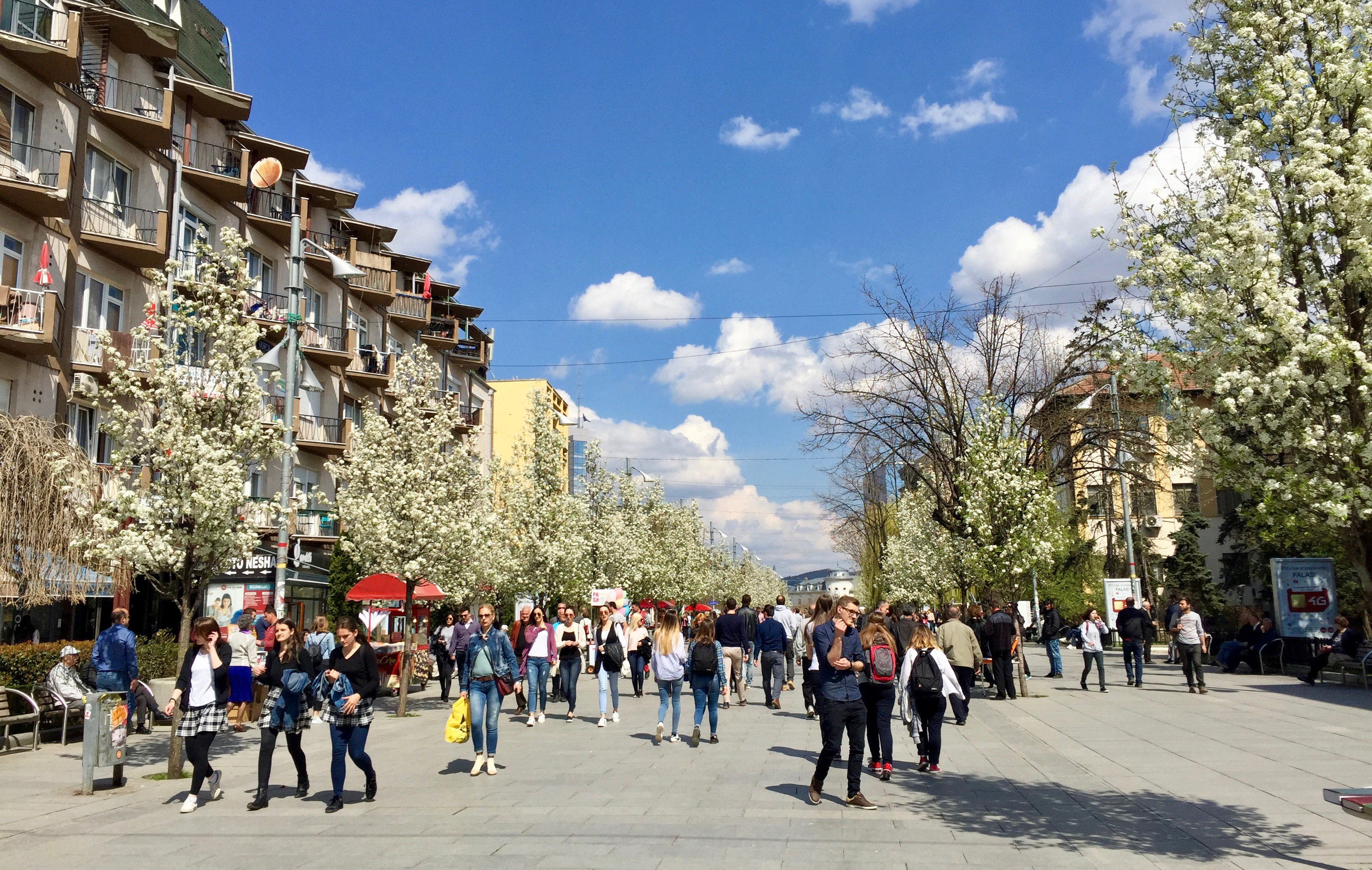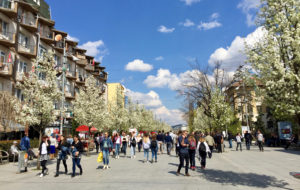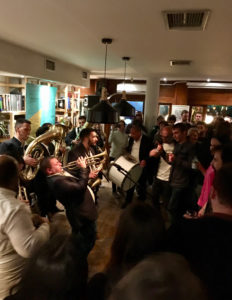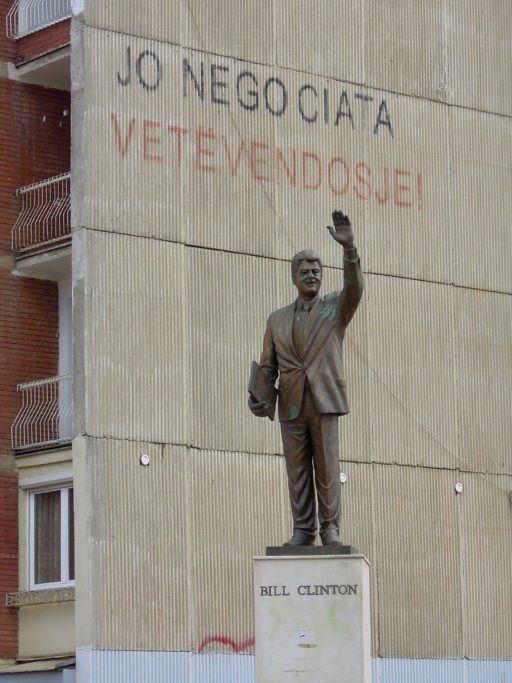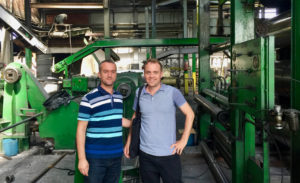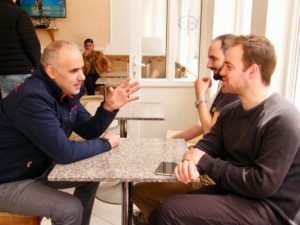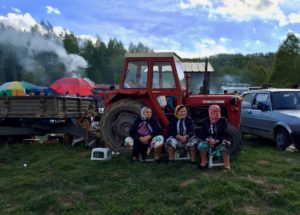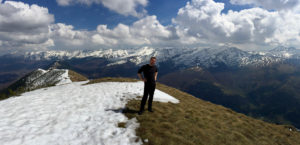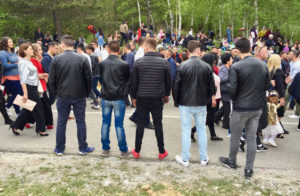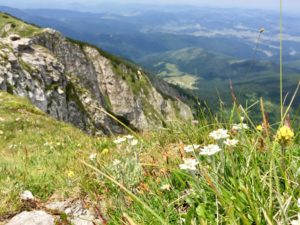Apart from the stereotypes, most Swiss people probably don’t know very much about Kosovo and it’s challenging path towards social and economical stability. Yet the youngest European nation – Kosovo has declared independence from Serbia in February 2008 and thus far 111 out of 193 UN member states have recognized its sovereignity – is much closer to Switzerland than many may realize. Not only because several daily direct flights connect Zurich and Basel with the capital Prishtina, but the large Swiss-Kosovar community has created strong ties between the two countries. An estimated 200’000 Kosovars live in Switzerland, accounting for one of the largest diaspora groups. This is a great chance for both nations to learn and profit from each other’s experiences and I sincerely hope these bonds can be strengthened further.
Kosovo – the European youngest nation – has a lot to offer. However, youth unemploment remains a challenge.
As an integral part of my Master of Advanced Studies in Development and Cooperation at ETH Zurich, I have had the pleasure to spend eight inspiring months in Kosovo, working for a development project called EYE – Enhancing Youth Employment, implemented by Helvetas Swiss Intercooperation in collaboration with a local partner.
Unemployment is very high in Kosovo, especially among youth, where almost 60% hold no formal job, compared to the European average of roughly 10%.
To ensure that the underlying causes of unemployment are tackled, not just its symptoms, the EYE project uses a market systems approach. This means, we perform extensive qualitative assessments of current economic failures and limitations before designing any specific intervention. Eye is interested in the behaviours of and interactions between all stakeholders in a given system such as a specific economic sub-sector.
Eye acts as soon as we see an opportunity to have an impact that benefits the entire sector without distorting the fundamental market forces. Using adaptive management methods and working with a flexible mindset, our project aims to achieve sustainable results that help to improve the long-term situation of the Kosovar job market.
Being in constant dialogue with the local population is crucial to development work.
For me, working with the EYE team, has represented a fantastic learning opportunity which I anticipate will significantly shape my professional profile. My mostly local colleagues are a highly qualified and motivated group of proven experts in the field of skills and private sector development and it has been a real pleasure to work with them. During my time here in Kosovo, I not only have had the chance to get to know the latest methods and tools available for this type of development work, but also to profit a lot on a personal level and sharpen my intercultural senses.Life in Prishtina is as urban and versatile as in any other European city of similar size, which actually takes many visitors by surprise. You can spend lazy afternoons chatting or relaxing in one of the many bars and beautiful cafes, sipping on what many believe to be the world’s best espresso and macchiato (yes, even better than in Italy), you can dance all night to great live music or enjoy the countless local and international restaurants.
I have spent my days off traveling and hiking the country, eager to get to know more about the Kosovar people and their way of life. Especially the western part, along the border with Albania, is a really beautiful area stretching from the stunning cliffs of Rugova Valley down to the Sharr Mountains and that includes the historic cities of Peja, Gjakova and Prizren. The whole area is filled with cultural highlights such as the Deçan Monastery and amazing nature like the remote Dragash plateau. Time and again, I am overwhelmed by the famous hospitality in this region, especially when strangers have welcomed me into their homes for coffee and homemade Raki.
The Kosovar spring and summer were filled with interesting work and memorable encounters and I look very much forward to a similarly rewarding autumn.
My days off I spend traveling and hiking the country, eager to get to know more about the Kosovar people and their way of life.
By Niklaus Waldvogel
Niklaus Waldvogel, a physicist by background, currently undertakes a Master of Advanced Studies MAS in Development and Cooperation at Nadel, ETH Zurich. He is spending eight months at HELVETAS Swiss Intercooperation as a Project Assistant in the Enhancing Youth Employment Project (EYE). The local project collaborater is Management Development Associates MDA.

